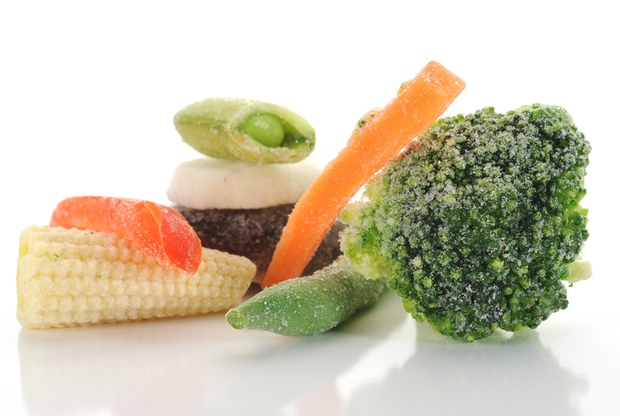These days, it’s often thought that the ethical thing to do is buy local and organic produce. But for some, doing so isn’t always an easy option. So what’s a well-meaning consumer to do?
Believe it or not, frozen produce is a healthy alternative, says registered dietitian Katie Heddleston. Here are her tips for buying frozen produce the next time you head to the grocery store.
1) Frozen fruits and vegetables are not as unhealthy as you might think.
If you’re not concerned with eating organic or local foods, frozen options are a great choice, says Heddleston. “Frozen produce is just fresh produce that is harvested at its peak ripeness, blanched, then flash frozen within hours of the harvest time.”
2) Frozen produce still keeps its nutrients.
Thanks to flash freezing, frozen produce maintain its vitamins, nutrients, antioxidants, and flavor. “Frozen produce, at times, can be even more healthful than the fresh produce available at some grocery stores,” says Heddleston, since it’s flash-frozen at the peak of ripeness, whereas raw produce is often picked before reaching its peak.
3) Microwaving frozen produce is okay—depending on the ingredients.
Those frozen veggie bags that are designed to be microwaved, such as Steamfresh, are “absolutely fine” nutritionally, says Heddleston. “It’s actually preferred to steam or microwave your veggies over boiling, to minimize the loss of water-soluble vitamins.”
4) Avoid frozen produce that comes with added ingredients.
Buying frozen fruits and vegetables is a nutritious option—the problem is when there are added ingredients. For frozen fruit, avoid packages that have the word “sweetened” on them, since you don’t actually need the extra sugar. As for frozen vegetables, “nix the packages that come with cheese or butter sauces.”
5) You don’t have to use the whole bag at once.
Using half the bag of produce and saving the rest for another time is fine, as long as the entire bag hasn’t thawed already. If you do save the rest for later, Heddleston recommends minimizing exposure to air to avoid freezer burn. And be sure to use it sooner than later, “because over many months, nutrients in frozen produce do degrade.”
6) Remember: To each his own.
While there are obvious benefits to buying frozen foods, Heddleston says buying fruits and vegetables in season and locally minimizes the time spent traveling, and therefore exposure to heat, light, and temperature. Still, next time you’re in a pinch, don’t feel guilty about heading to the frozen foods section of the grocery store.



















